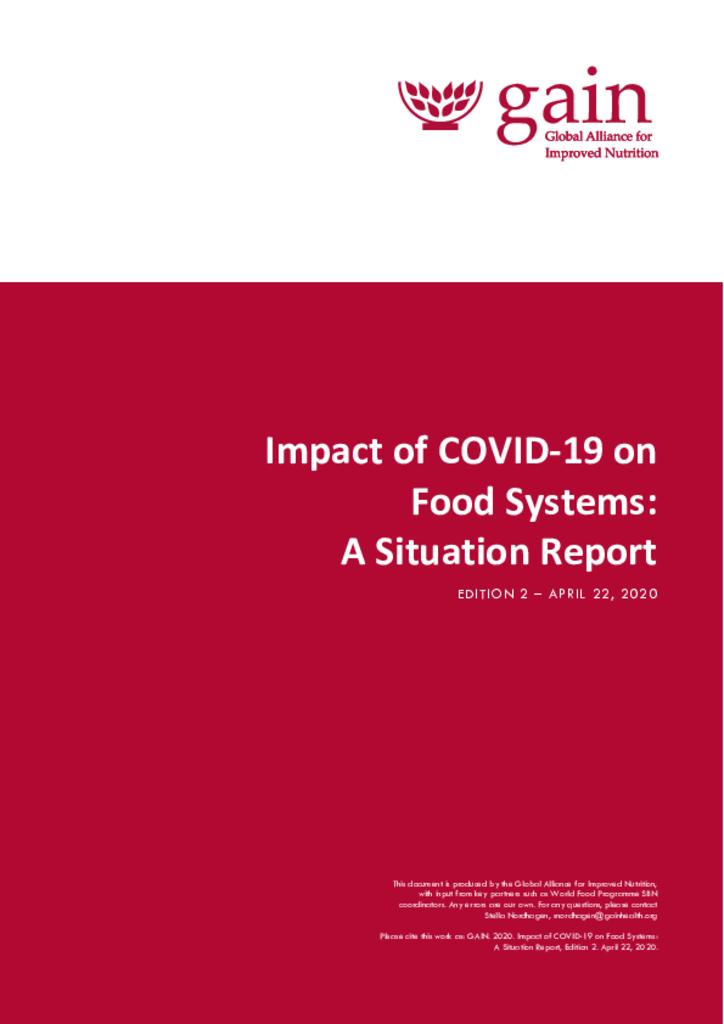These document series summarise some rapid assessments undertaken by the Global Alliance for Improved Nutrition (GAIN) to understand early impacts of the COVID-19 coronavirus pandemic on food systems in a set of low- and middle-income countries where GAIN works (Bangladesh, India, Pakistan, Indonesia, Mozambique, Ethiopia, Kenya, Tanzania, Rwanda, and Nigeria).
A particular focus is placed on small- and medium-sized enterprises (SMEs) within the food system.
Based on a rapid assessment involving key informants, SME owners, and data from secondary sources, COVID-19-related control measures (such as movement restrictions and business closings) are having an impact on food systems in the 10 countries studied here.
- Some food price increases and disruptions to food availability are reported, particularly for imported foods and perishable fruits and vegetables.
- Food system SMEs are facing considerable challenges with transporting goods, acquiring inputs and equipment, and ensuring workforce continuity; some have also seen decreases in demand.
- Some SMEs and business leaders also see opportunities in the pandemic, such as through new distribution models and import substitution
- The situation is changing rapidly and varies widely across (and likely within) countries.
- Several governments have acted to support low-income consumers as well as business owners.
